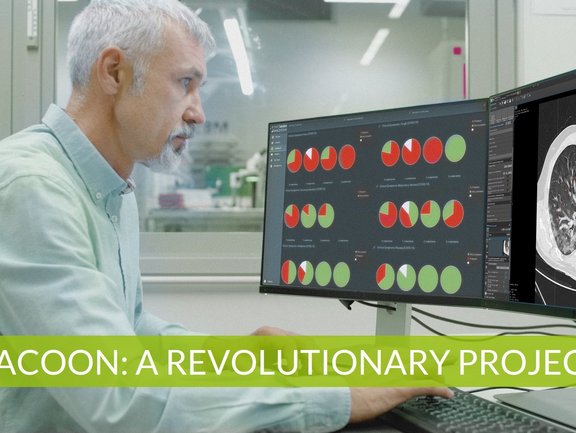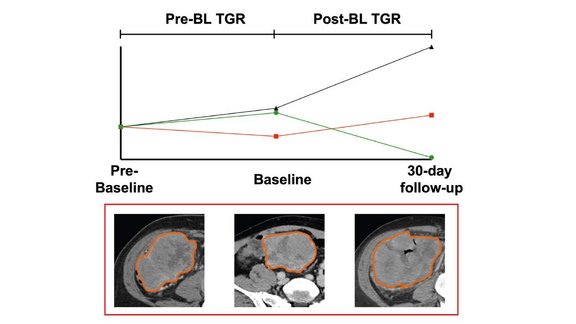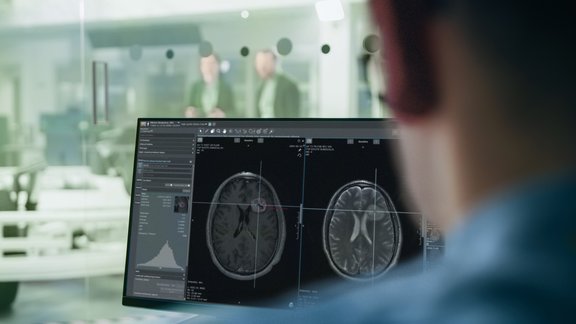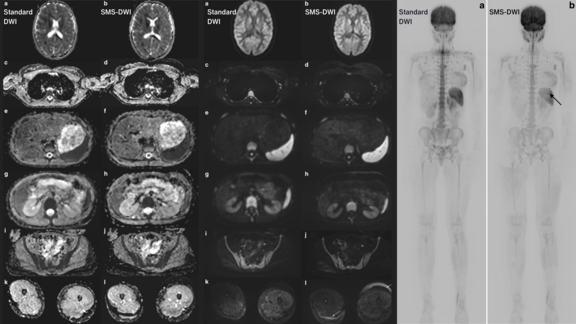The idea of aggregating clinical data from different sources, processing it in a structured way and using it for joint research may not be new, but actually implementing it has mostly been wishful thinking. Until now: the RACOON Radiological Cooperative Network project has succeeded in connecting all 36 university hospitals in Germany in a joint research initiative, where data on COVID-19 and other lung diseases from all sites can be collected and analyzed.
Research and cooperation partners in this innovative project include the German Cancer Research Center (DKFZ), the Fraunhofer Institute MEVIS, the Technical University of Darmstadt, the company ImFusion and us, Mint Medical. mint Lesion™ plays a central role in the project: right from the first report, mint Lesion™ links any measured value to the context of its creation, defining its clinical significance and thus ensuring traceability, quality and long-term usability. The structured mint-findings will be used to create a comprehensive, machine-readable dataset for pandemic research, which will form the backbone of the project. On the one hand, this consists of a central, cloud-based mint Lesion™ instance for multicenter provision and analysis of anonymized data. On the other hand, it consists of decentralized instances that will be made available to all university hospitals and also enable the processing of local data in non-anonymized form so that they can be used in routine clinical processes of diagnostics and therapy.
"RACOON forms a sustainable collaboration framework in the university medicine network. By bringing together a Germany-wide partner network of all university hospital radiology departments and highly qualified technology and research partners, a hitherto unique infrastructure basis for enabling collaborative projects has been created. RACOON creates a significantly higher efficiency for collaborative research projects and can enable previously unattainable research goals," affirms Dr. Andreas Bucher, Head of the AI Research Division at the University Hospital Frankfurt. Structured reporting makes it possible to create a holistic overview that would not be possible with unstructured data on a project of this scale. With this mass of high-quality and AI-compatible data, there are a variety of research opportunities from which patients will benefit in the future.

RACOON: A revolutionary project with all German university hospitals in the University Medicine Network (NUM)
Related Resources
Related Resources

University Hospital Munich (LMU): Study Analyzing the Tumor Growth Rate as a Prognostic Biomarker in Lymphoma Patients Under CAR T-Cell Therapy
A recent study[1] conducted by researchers at the University Hospital Munich (LMU) investigated the role of tumor growth rate (TGR) in predicting the…

Advancing Neuro-Oncology Assessments: Mint Medical to Integrate Newly Published RANO 2.0 Criteria into mint Lesion™
Glioblastomas and other gliomas are the most common malignant primary brain tumor types, yet few effective therapies are available. Clinical research…

New Technique Speeds Up Whole-Body MRI for Children Without Sacrificing Image Quality, Study Finds
As we mark Childhood Cancer Awareness Month, we would like to highlight the progress achieved in the realm of cancer diagnostics. A recent study led…